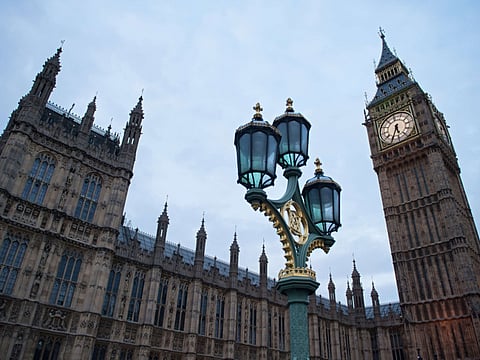On foreign policy, Britannia doesn’t rule the waves
A diplomatic report warns that British foreign policy is in crisis and UK needs to ensure it presents a united front in global dealings

United Kingdom foreign policy is thrashing around, trying to be significant and noticed on a host of fronts, and not doing anything particularly well.
Such are the nutshell conclusions of a commission of the great and good, including many former practitioners, brought together by the London School of Economics to consider UK diplomacy.
Their report, which was released last Monday, sounds very much like a slightly more modern rendition of the truism that Britain has lost its empire and has still — all these years on — not found a new role in the world.
Soul-searching about UK foreign policy is in vogue at the moment. Only in the past couple of weeks, there have been calls for the Foreign and Commonwealth Office budget to be protected at 1 per cent of gross domestic product, to facilitate longer-term planning and give it the same sort of guarantees as the aid budget (0.7 per cent of GDP) and the defence budget (to meet its Nato commitment of 2 per cent of GDP).
We have heard the former head of the Foreign Office, Sir Simon Fraser, denounce any cuts above 25 per cent as “neither coherent nor wise”, a foreign office minister warn of the danger that the Foreign Office will be “hollowed out”, and concern about a supposedly new (but not new) shift of emphasis from human rights to commercial interests — exemplified in visits of the leaders of China, Kazakhstan and Egypt within little more than a fortnight.
Some of this new bout of soul-searching can be explained by George Osborne’s call for departmental spending cuts; some by the imminence of the strategic security and defence review, and still more by a general feeling in the Foreign Office, post the well-liked and high-profile William Hague, that diplomacy has become a poor relation, to the detriment of the UK’s standing in the world.
Much of this seems to me little more than self-serving verbiage, laced with nostalgia for an era where Britannia ruled the waves (and a large amount of land as well), projecting its power not just regionally, but around the globe. The military top brass suffers from many of the same delusions. Those days are over. It is beyond time to recognise that. The ill-fated military interventions of recent years reflect failures of diplomacy, quite as much as failures of the armed forces.
This latest report, alas, sticks to the idea of the UK as a global power with a unique contribution to make, if only in “soft power”. Well, our soft power benefited no end from the successful London Olympics, but the fallout from Abu Ghraib and the compensation paid to former inmates of Guantanamo have to be set against that.
There are a couple of ways, though, in which the latest report points in the right direction. The first is its emphasis on Europe.
“Constantly fretting about the formal status of our association with the European Union restricts what the UK can in practice achieve through that relationship. In, out, or semi-detached, the fact is that working in and with Europe is a necessary component of nearly every area of policy.” Hear, hear. Unfortunately, this will not be resolved until after the referendum.
A second is the suggestion that the Foreign Office and Department for International Development (DfiD) might be put back together again. DfiD will probably resist to the last. But we have a situation at present where different arms of the government are doing different things in the same foreign parts, and can find themselves acting (expensively in every sense) at cross purposes.
There might even be an argument for going further and amalgamating everything to do with abroad, including the Ministry of Defence. “Pooling and sharing” a budget — to use the phrase beloved by Nato — would concentrate minds and necessitate much wider debate about the UK’s role abroad and how the money is spent. Let the real budget battle begin.
— Guardian News & Media Ltd


